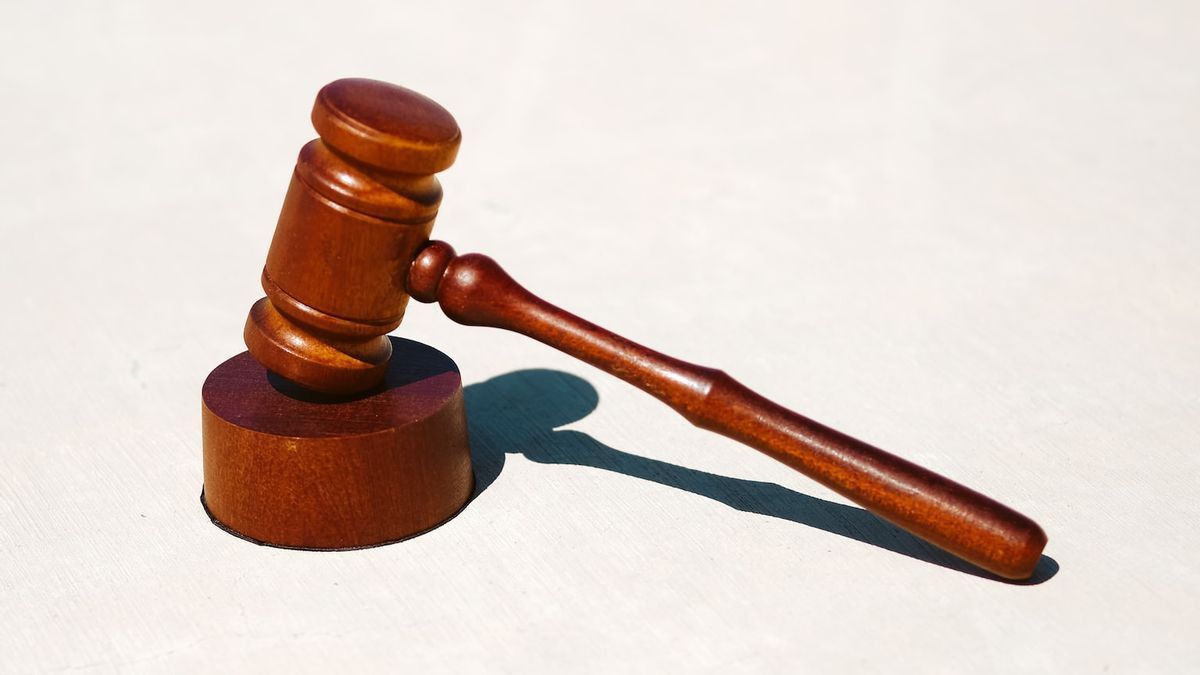YOGYAKARTA - The legal effort for reconsideration (PK) related to the cassation filed by Moeldoko regarding the Democrat Party KLB is being discussed. Moeldoko said he did not know about the PK regarding the decision of the Supreme Court (MA) which rejected the cassation he submitted.
Previously, Agus Harimurti Yudhoyono, Chairman of the Democratic Party, said that Moeldoko and Jhonny Allen Marbun, the secretary general of the KLB version of the Democratic Party, filed a PK against the cassation decision rejecting Moeldoko's lawsuit through decision Number 487/K/TUN 2022 on September 29, 2022.
AHY said Moeldoko submitted four novums or new evidence. AHY also revealed that his party is ready to fight because the four novums have become evidence in the Jakarta Administrative Court trial with case Number 150/G/2021 on November 23, 2021. So what is legal review?
Reporting from the djkn.kemenkeu.go.id page, legal remedies for reconsideration (PK) are legal steps that can be taken by the convict in a court decision that has permanent legal force in the justice system in Indonesia. Requests for judicial review (PK) can be carried out in civil cases and criminal cases.
The Criminal Procedure Code (KUHAP) of Article XVIII of Law Number 8 of 1981, reconsideration is one of the extraordinary legal remedies in the justice system in Indonesia. Extraordinary legal remedies are exceptions to ordinary legal remedies, namely trial at the District Court, appeal hearing at the High Court, and cassation at the Supreme Court.
Provisions for submitting PK legal remedies have been regulated in Article 67 of Law (UU) Number 5 of 1985 concerning the Supreme Court of the Republic of Indonesia. The PK application for the decision of civil cases that have obtained legal force can still be submitted based on the following reasons.
1. If the decision is based on a lie or trick the opponent who is known after the case is decided or based on evidence which is then declared false by the criminal judge;
2. If after the case is terminated, determining evidence is found which when the case is examined cannot be found;
Letters as written evidence are divided into two, namely letters that are deed and other letters that are not deed, while the deed itself is further divided into authentic deeds and deed under the hand. The deed is a letter as evidence that is signed, which contains events that form the basis of a right or partition.
3. If it has been granted something that is not demanded or more than what is demanded;
This reason can be classified as follows:
- The verdict grants a thing, while there is absolutely no plaintiff to ask for it in the lawsuit.
- The verdict exceeds what is demanded. Judges are prohibited from giving or granting it in excess of what is demanded. This provision violates the principle of ultra petitum for the partium or ultra petite. Judges must not grant it more than what is demanded in the petitum of the lawsuit.
4. If it comes to a part of the claim, it has not been decided without considering the causes;
In a judge's decision, a judge is ordered to try or decide on all parts of the lawsuit. For example, it is not decided whether or whether or not to be rejected or granted a provision lawsuit, request for confiscation or request for a decision immediately without considering the causes. Such negligence and obscenity can be used as an excuse for a PK application by the plaintiff, because it is detrimental to his interests.
5. If the same parties regarding a similar matter, on the same footing by the same Court or at the same level, a decision has been given that is against one another;
Conditions that current are met so that the reasons have validity:
- There are two or more conflicting decisions.
- The parties involved in the decision of the conflicting cases are the same.
- Regarding the same question or basis.
- By the same or the same level.
- The final and conflicting verdict has permanent legal force, and the verdict has been notified to the litigants.
6. If in a decision there is a mistake in the judge or a real mistake.
The reason for the PK which is the most frequent and the most frequent in practice is real mistakes or mistakes. This reason is considered very wide reach. What considerations and opinions are contained in the decision, can be constructed and engineered as a real mistake without limits.
That is the review of what is a legal review effort. Requests for reconsideration must be submitted by the litigants themselves, or their heirs or a representative who is specifically authorized for it. If during the review process the applicant dies, the petition can be continued by the heirs.
Stay up to date with the latest domestic and other overseas news on VOI. You present the latest and most updated nationally and internationally.
The English, Chinese, Japanese, Arabic, and French versions are automatically generated by the AI. So there may still be inaccuracies in translating, please always see Indonesian as our main language. (system supported by DigitalSiber.id)








